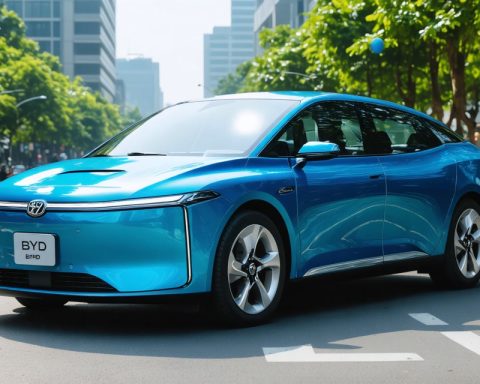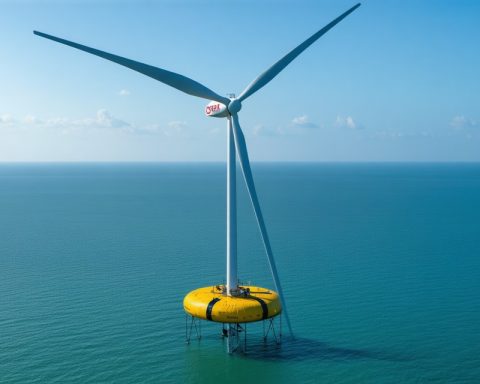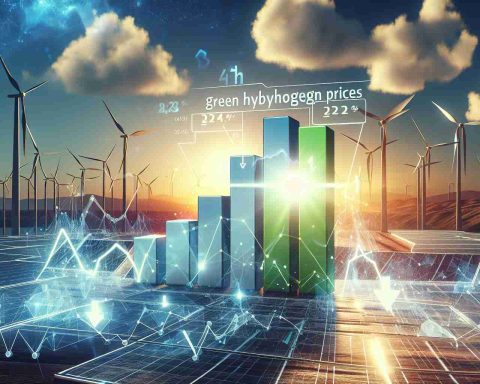- Kellanova’s Manchester factory is pioneering the use of hydrogen to power cereal production, marking a significant advancement in sustainability for the UK food manufacturing industry.
- Part of the HyNet Industrial Fuel Switching 2 program, the trial replaced traditional fossil fuels with hydrogen to power the facility’s toasting ovens.
- This initiative received £3 million from the UK government’s £55 million Industrial Fuel Switching Competition, underlining national efforts to achieve net-zero emissions.
- Kellanova aims to significantly reduce its emissions, building on an existing 54% reduction, with a target of 63% by 2030.
- The project illustrates how technological innovation and environmental stewardship can align to support a sustainable future.
- The trial indicates a broader shift towards decarbonization in industries, emphasizing the importance of small steps in combating climate change.
Tucked away in the heart of Manchester, a quiet revolution simmers within the walls of a well-known cereal factory. The familiar hum of production lines now harmonizes with an audacious leap into the future. Kellanova, the company behind iconic brands like Corn Flakes and Rice Krispies, has achieved a remarkable feat—producing cereal using hydrogen as a power source.
The move marks a pioneering step, not only for Kellanova but also for the entire UK food manufacturing industry. As part of the HyNet Industrial Fuel Switching 2 program, this venture enlisted the power of hydrogen to fire up the factory’s colossal toasting ovens, replacing traditional fossil fuels. Over the course of an ambitious three-week trial, the Manuscript street facility successfully churned out copious batches of breakfast favorites, all fueled by the clean, green touch of hydrogen.
The UK government, keen to propel industries towards a sustainable horizon, allocated £3 million from a larger, £55 million Industrial Fuel Switching Competition to support this project. This initiative is a critical fragment of the country’s £1 billion Net Zero Innovation Portfolio, aiming to harness groundbreaking technologies to curb emissions and combat climate change.
For Kellanova, this trial is more than just a litmus test for hydrogen’s capability; it’s a bold statement in their broader decarbonization strategy. With an already impressive 54% reduction in their European emissions, the company sets its sights on a 63% decrease by the dawn of 2030.
Envision breakfast bowls across the globe filled not just with cereal but with the promise of a cleaner planet. As hydrogen flames danced within those industrial ovens, an inspiring narrative unfolded—one where technological innovation aligns seamlessly with environmental stewardship.
What’s the deeper grain of wisdom here? The future of our planet may well lie in such innovative pivots, where industries not only adapt but embrace change as they lead us toward sustainability. In these extraordinary times, every small step—be it a cereal box or a hydrogen-fueled oven—counts in the great mosaic of climate action.
Prepare for a revolution in your morning rituals, as the dawn of greener breakfasts has arrived. If Kellanova’s leap proves anything, it is this: even in the crunch of daily routine, tomorrow’s solutions are being baked today.
Revolutionize Your Breakfast: Hydrogen-Powered Cereal Production Transforms the Industry
A New Era for the Food Manufacturing Industry: Hydrogen-Powered Cereal Production
In a groundbreaking shift, Kellanova, the renowned company behind beloved breakfast cereals like Corn Flakes and Rice Krispies, has ventured into producing cereal using hydrogen as a power source. This initiative reflects a significant move towards sustainable practices in the UK food manufacturing industry and is part of the HyNet Industrial Fuel Switching 2 program, highlighting the potential of hydrogen as a clean energy source.
How Hydrogen Fuels Cereal Production
Hydrogen is used to fire up the factory’s large toasting ovens, traditionally powered by fossil fuels, reducing carbon emissions and contributing to a cleaner environment. Through a successful three-week trial, Kellanova proved hydrogen’s effectiveness in sustaining production without compromising the quality of their products.
Industry Trends and Market Forecasts
The global shift towards sustainable energy solutions is accelerating, with hydrogen emerging as a viable alternative to fossil fuels in various industrial processes. According to the International Energy Agency (IEA), the global demand for hydrogen could increase tenfold by 2050, driven by industries and transportation sectors aiming for decarbonization.
Key Benefits of Hydrogen Fuel in Manufacturing
– Reduction in Carbon Emissions: Hydrogen power significantly lowers greenhouse gas emissions compared to traditional fuels.
– Sustainability: It paves the way for eco-friendly manufacturing processes, aligning with global sustainability goals.
– Energy Efficiency: Hydrogen can be more efficient than fossil fuels in certain industrial applications.
Potential Challenges and Limitations
– Infrastructure: The current infrastructure for hydrogen production and distribution is limited, which may slow widespread adoption.
– Cost: The cost of hydrogen production, especially green hydrogen, remains higher compared to fossil fuels, though the price is expected to decrease as technology advances.
– Safety Concerns: Hydrogen is highly flammable, necessitating stringent safety measures in its handling and use.
Actionable Steps Towards Sustainable Practices
1. Investment in Technology: Companies should explore hydrogen technologies as part of their long-term sustainability strategies.
2. Government Support: Enhanced policy frameworks and financial incentives can stimulate broader adoption in various sectors.
3. Public Awareness: Increasing consumer awareness about sustainable products can drive demand for eco-friendly innovations.
The Future Outlook
As Kellanova sets an example with its hydrogen-powered cereal production, the success of this trial could inspire similar initiatives across the globe. With the UK’s commitment to achieving Net Zero goals, innovations like these could soon become the standard in the food manufacturing industry.
Conclusion
The successful implementation of hydrogen fuel in cereal production opens new avenues for the decarbonization of the food manufacturing industry. As more companies follow suit, consumers can enjoy their breakfast knowing they are contributing to a sustainable future. Embracing such innovations marks a crucial step in reducing environmental impact, one small bowl of cereal at a time.
For more information on sustainable practices and innovations, visit [UK Government’s Official Site](https://www.gov.uk).














